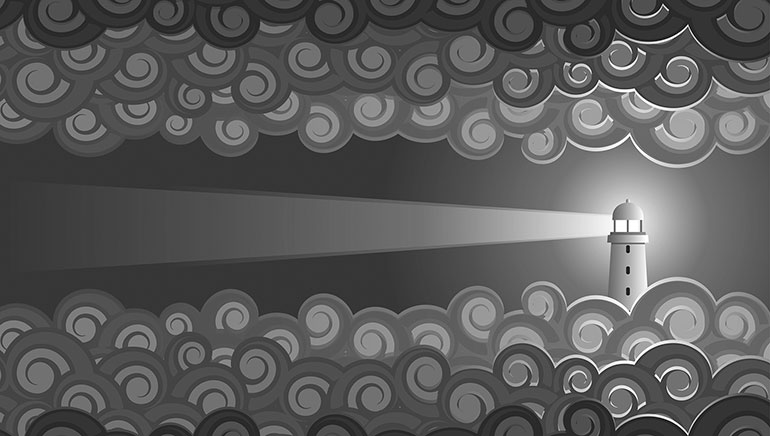When I look at my son now, it’s difficult to remember the tiny, hungry baby we brought home. Nineteen years have passed, and my husband and I are the parents of a teenager. When we attempt conversation, Noah scowls, as though we are speaking a foreign language. Our questions elicit monosyllabic grunts, while requests, and even mundane comments, invariably evoke a thunderous “Why?” He texts friends and watches movies while preparing for tests and doesn’t finish his homework until one in the morning.
But every night before Noah goes to bed, he creeps into our room, lays his head on my shoulder, and whispers, “Goodnight, Mom.” Since the day we met him, he has brought to our family a blend of peace and promise. He has been our blessing.
Keith was the divorced father of two pre-adolescents when we married and became an instant family of four. When our elder son and daughter left for college, we set about replanting our family garden. Leah was born in Lima, Peru; we brought her home in the spring of 1990, when she was five months old. One year later, we adopted a special-needs child from Guatemala. Noah was six months old. He had a cleft lip and palate.
Repair of cleft lip and palate is done in stages. Noah underwent his first surgery when he was nine months old. In the years since, he has undergone eight major surgeries, worn orthodontic braces on and off for 10 years, participated in weekly speech therapy, and had extensive dental prosthetic work. He also took piano lessons, became an accomplished clarinetist, engaged in two years of independent study with a private Greek tutor, and nurtured his creativity through photography. He prefers social studies to math, small groups to parties, and mac and cheese to just about any traditional family meal.
Maybe that’s because, as Noah likes to remind me, we’re not a traditional family. Being multi-generational and multi-cultural might be considered our average qualities.
Leah was diagnosed with developmental disabilities and autism spectrum disorder when Noah was two. Life in our home was chaotic. Some nights we wished we could press a panic button for instant assistance because Leah’s temper tantrums persisted for hours. Noah became a role model for his sister. Calm and positive, his influence—and sometimes, a soothing word or a gentle touch—guided her safely back into focus. She wanted to please him. He wanted her to be happy. As I was putting him to bed after a particularly tumultuous night, Noah asked, “Mom, am I the big brother now?” He was four years old.
Our differences set us apart from other families we knew, some of whom found our coping mechanisms—even our way of life—difficult to accept. Noah understood that not all of his classmates would enjoy a visit to our house. He learned early to select those who were flexible and non-judgmental. “I just don’t think he’d do well with Leah,” he’d say of some friend or other I’d suggested for an afterschool play date. We accept our children as they are and make accommodations for their special needs. In fact, given the choice, we tend to gravitate toward difference. “At our house we like things that aren’t perfect,” Noah once told a classmate.
Our son came to us a cranky, undernourished infant, but has grown into a self-assured, sensitive young man. Adoption is central to who he is as a person and who he will become as a man, but we don’t dwell on it. He is an American boy living with his parents and siblings in the heartland; he has another mother and two half-brothers living in the village of his birth in the highlands of Guatemala. This fall he will leave for college, where he will stay up all night hanging out with friends when he should be studying. He won’t call home often enough to suit me, but I’ll get used to it.
We sometimes laugh when we remember that Noah was supposed to be our special needs adoption child, because he became, instead, his sister’s guiding light. I believe everyone has special needs, and one of them is the need to belong. Noah’s place is in our hearts.



